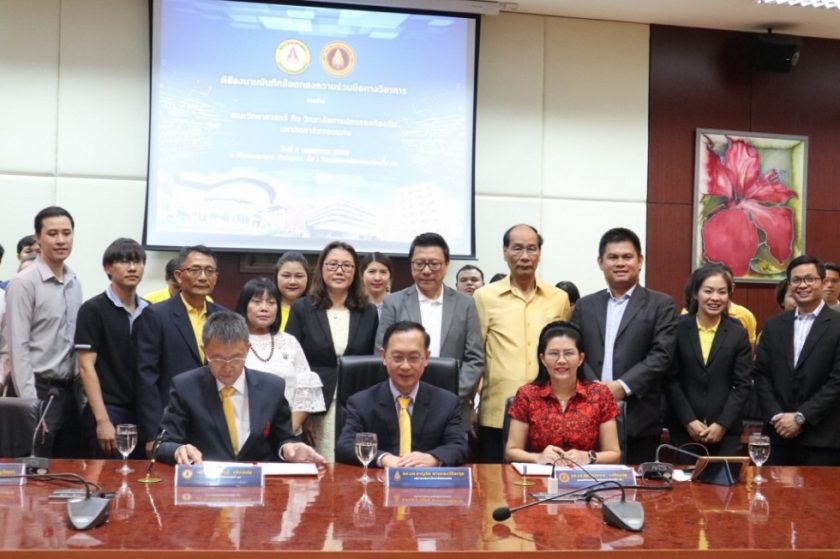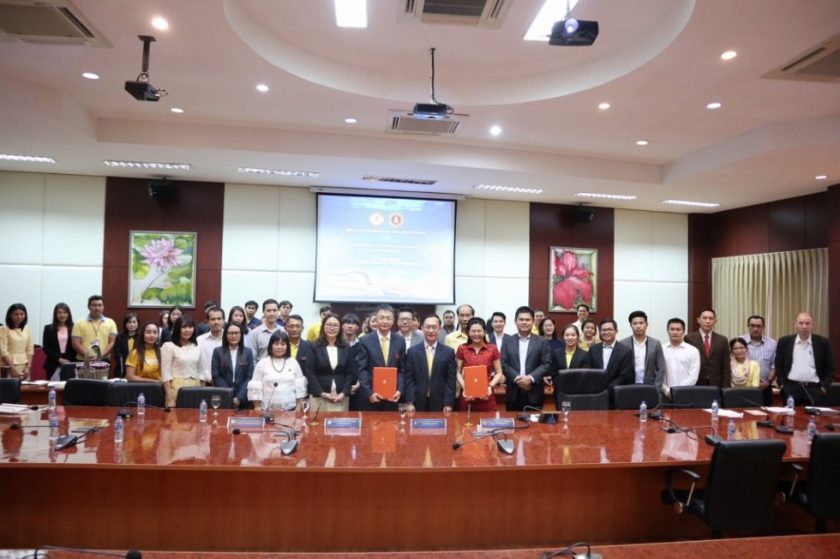KKU starts Digital Governance Curriculum developing students’ potential for the future by introducing technology to public services which is easily accessed by tapping with the tips of fingers
KKU starts Digital Governance Curriculum developing students’ potential for the future by introducing technology to public services which is easily accessed by tapping with the tips of fingers.
On May 8, 2019 at 11 a.m. at College of Local Administration, Khon Kaen University (COLA KKU), Assoc. Prof. Charnchai Panthongviriyakul (MD), Acting President of Khon Kaen University (KKU) presided over signing ceremony between COLA KKU and KKU’s Faculty of Science aiming to develop cross-curriculum. The ceremony was witnessed by a lot of lecturers and KKU students who were interested in.
Assoc. Prof. Charnchai Panthongviriyakul said that cross-curriculum development designed by COLA KKU and Faculty of Science was a way to improve standard of KKU’s curriculum focusing on Digital Governance. Digital technology would be utilized to enhance work efficiency and quality of public services. The curriculum had been developed to be consistent with KKU’s strategies and policies from KKU Council Committee hoping to see new curriculum development enabling integration between two academic disciplines that could be adjusted to changes of the world at present. The committee had encouraged faculties and colleges improve and create integrated curriculum to enhance students’ potential which would be applicable for work after they graduated.
“The curriculum development emphasizes on new learning approach, that is, students can learn from practicing. The integrated content of cross-curriculum is also aimed to improve necessary skills for the future, especially information technology skill. We hope that our graduates will be administrators of public affairs and can design more efficient public services with the help from modern technology.”
Assoc. Prof. Dr. Supawatanakorn Wongthanavasu, Dean of College of Local Administration, revealed that the new developed curriculum had been designed for university students and people in general who needed to use technology at work in the world that kept changing. Learning management was conducted in the form of knowledge market, and teaching approaches were opened in the form of degree and non-degree. Anyone could attend classes at the university or online classrooms anywhere and anytime. They could register and collect credits from courses to obtain degree later, too.
The two organizations’ Competency Based Curriculum requires graduates to have 4 competency dimensions – society, mission, public section, and personality. Competency of each dimension has been defined to be consistent with Digital Government promoting democracy, equity, access, and availability. Moreover, the objective of this curriculum development is to develop innovation to support new administration utilizing technology that can lead to more efficient administration for our nation.
“Because the government are proceeding with the concept of Digital Government, this curriculum have been planned to work properly in accordance with that concept. Not only theories and practice in class, teaching approaches also focus on innovation development for digital administration of public organizations and for tools controlling the work as a whole picture.”







